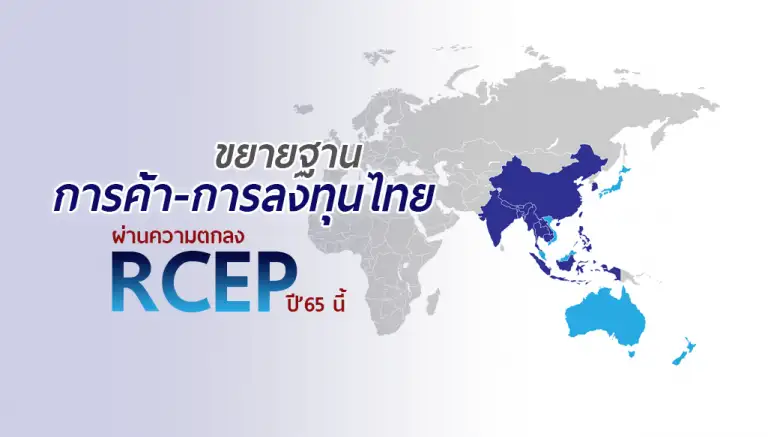Expanding Thailand's Trade and Investment Opportunities Through RCEP in 2022
February, 25 2021

Following the Thai Parliament’s approval of the RCEP ratification, the complete details of the agreement will be published on the Department of Trade Negotiations website (www.dtn.go.th) to benefit Thai businesses.
Key Government Agencies Adapting to RCEP Regulations
Three key government agencies will need to revise their regulations to align with RCEP:
-
Ministry of Finance
- Adjusts customs tariff classifications from HS 2012 to HS 2017
- Reduces or eliminates import duties
-
Ministry of Commerce
- Designs new certificates of origin and import regulations
- Allows more flexibility in raw material sourcing, including non-RCEP countries
-
Ministry of Industry
- Sets conditions for importing automotive parts, allowing Thailand to open up specific parts markets
The ratification process is expected to take 2-6 months, after which an official document will be submitted to the ASEAN Secretariat. The RCEP agreement is expected to take effect on January 1, 2022.
Benefits for Thailand’s Three Key Industry Groups
1. Agriculture
- China, Japan, and South Korea will reduce or eliminate tariffs on Thai agricultural exports.
- Key products benefiting from this include:
- Fresh and processed fruits & vegetables
- Plant-based oils
- Processed foods
- Tapioca starch
- Fisheries and seafood products
2. Industrial & Manufacturing
- Both importers and exporters will benefit from:
- Automotive parts
- Electronics & electrical equipment
- Chemical products
- Synthetic rubber
3. Services & Investment
- Thai investors will be able to expand their businesses within RCEP markets, particularly in healthcare, tourism, construction, and online gaming.
- 100% foreign ownership will be allowed in these sectors.
- Similarly, RCEP members can invest in Thailand, particularly in education, science, and environmental industries.
RCEP as a Catalyst for Thailand’s Economic Recovery
Thailand’s economic recovery requires strong export growth, making international trade cooperation essential. RCEP will serve as a key driver in expanding Thailand’s export markets.
Additionally, Mr. Danucha Pichayanan, Secretary-General of the National Economic and Social Development Council (NESDC), stated that Thailand is also preparing to negotiate entry into the Comprehensive and Progressive Agreement for Trans-Pacific Partnership (CPTPP).
Although the CPTPP accession process may take time, it will create long-term benefits for Thai exports and investment opportunities.